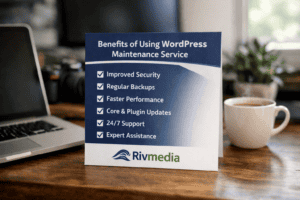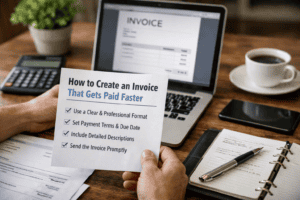Table of Contents
- Navigating Business Insurance Policies
- Understanding Policy Terms and Conditions
- Regular Review and Update of Your Insurance Policy
- The Impact of Not Having Adequate Business Insurance
- Case Studies: The Value of Business Insurance
- Exploring Additional Types of Business Insurance
- Factors Influencing Business Insurance Premiums
- How to Claim on Your Business Insurance
- Common Misconceptions About Business Insurance
- Insurance for Home-Based Businesses
- Preparing for the Future with Adequate Insurance
- Conclusion
Understanding business insurance in the UK is crucial for every business owner. This type of insurance safeguards your business against various potential risks and financial losses. In an environment where unforeseen circumstances can have significant impacts, having the right insurance policies in place is not just prudent; it is essential for the continuity and stability of your business.

What is Business Insurance?
Business insurance refers to a range of policies designed to protect businesses from financial losses due to unexpected events. These events can include theft, liability, property damage, and employee-related risks. Different types of businesses require different insurance policies, tailored to their specific risks and needs.
Types of Business Insurance
There are several types of business insurance policies, each catering to different aspects of business risks:
1. Public Liability Insurance: This covers your business against claims of injury or damage caused to third parties or their property.
What It Covers
- Injuries to third parties: Medical costs, loss of income, and legal fees.
- Property damage: Costs for repairing or replacing damaged property.
- Legal defense costs: Expenses incurred if a claim goes to court.
What It Does Not Cover
- Employee injuries: These are covered by Employers’ Liability Insurance.
- Professional negligence: Covered by Professional Indemnity Insurance.
- Product-related claims: Covered by Product Liability Insurance.
Importance for Businesses
Essential for businesses that have public interaction or access to their premises. Protects against financial losses due to claims, ensuring business stability.
Assessing Coverage Needs
Depends on business type, size, and risk level. High-risk businesses may need higher coverage. Consulting with an insurance professional is recommended to determine adequate protection. Public Liability Insurance is a key component in safeguarding a business against financial liabilities arising from accidents or damages involving third parties.
2. Employers’ Liability Insurance: Mandatory for most businesses with employees, this insurance protects against claims from employees who have been injured or become ill as a result of their work.
Definition, Purpose and Legal Requirement
Employers’ Liability Insurance is a mandatory UK insurance for businesses with employees. It covers claims from employees who are injured or become ill due to their work. Most businesses must have this insurance by law, typically with a minimum coverage of £5 million.
Coverage
- Injuries or illnesses related to work.
- Legal costs for defending claims.
- Compensation for employee loss of income.
Importance
Crucial for protecting businesses against costly claims and ensuring workplace safety.
Penalties for Non-Compliance
Businesses can be fined up to £2,500 per day without this insurance. This insurance is essential for safeguarding businesses against the financial risks of employee claims.
3. Professional Indemnity Insurance: Essential for businesses that provide advice or services, this policy covers against claims of negligence or inadequate service.
Definition and Role
Professional Indemnity Insurance is vital for businesses offering advice or services. It protects against claims of negligence, errors, or inadequate service.
Key Coverage
- Legal defense costs for negligence claims.
- Compensation payments for mistakes or oversights.
- Financial losses incurred by clients due to inadequate service.
Importance for Service Providers
This insurance is critical for maintaining professional credibility and financial stability, especially for advisors, consultants, and service providers. It ensures businesses can operate confidently, knowing they are protected against the financial implications of potential professional errors.
4. Property Insurance: This covers damage to your business property, including buildings and contents, due to events like fire or theft.
Definition and Function
Property Insurance is designed to protect business properties against damage. It covers both the physical buildings and the contents within, such as equipment and inventory.
Key Coverage Areas
- Damage to buildings and internal contents due to events like fire, theft, or natural disasters.
- Costs for repairs or replacements of damaged property.
Importance for Businesses
This insurance is crucial for safeguarding the physical assets of a business, ensuring financial protection against significant repair or replacement costs due to unforeseen damaging events. Property Insurance provides a safety net, allowing businesses to recover and rebuild without bearing the full financial burden of such losses.
Why is Business Insurance Important?
Business insurance is vital for several reasons:
- Legal Requirements: Certain types of insurance, like employers’ liability insurance, are legally required in the UK.
- Financial Security: Insurance provides financial protection against significant unforeseen expenses that could otherwise be catastrophic for your business.
- Reputation and Trust: Having adequate insurance demonstrates to your clients and employees that you are a responsible and trustworthy business owner.
Navigating Business Insurance Policies
Choosing the right business insurance can be complex. It is essential to understand the specific needs of your business and the types of insurance that will best meet those needs.
Assessing Your Business Risks
To select the appropriate insurance, first assess the risks associated with your business. Consider factors like the nature of your work, the size of your business, and the number of employees. Different businesses will have varying levels of risk in areas such as liability, property damage, and employee-related issues.
Choosing the Right Policy
After identifying your risks, the next step is to choose policies that provide adequate coverage for those risks. It is crucial to read the terms and conditions of each policy carefully to understand what is and is not covered.
How Much Coverage Do You Need?
The amount of coverage you need depends on several factors, including the size of your business, your industry, and the level of risk involved in your operations. It is often beneficial to consult with an insurance professional to determine the right level of coverage for your business.
Cost of Business Insurance
The cost of business insurance varies based on the type and amount of coverage you choose. While it is tempting to opt for cheaper policies to save costs, ensure that you do not compromise on essential coverage that could leave your business vulnerable.
Understanding Policy Terms and Conditions
Understanding the terms and conditions of your business insurance policies is critical. This knowledge ensures that you are aware of what your policy covers and, equally importantly, what it does not.
Key elements to understand in your policy include:
- Policy Exclusions: These are the situations or risks that your policy does not cover.
- Claim Limits: This is the maximum amount that the insurer will pay out for a claim.
- Deductibles: This is the amount you need to pay out of pocket before your insurance coverage kicks in.
It is also important to keep your insurance policies updated. As your business grows or changes, so too should your insurance coverage to ensure it remains adequate.
Regular Review and Update of Your Insurance Policy
Regularly reviewing and updating your business insurance policy is as important as having one. As your business evolves, so do its insurance needs. Periodic reviews ensure that your coverage remains aligned with the current state of your business and the environment in which it operates.
When to Review Your Insurance Policy
Consider reviewing your insurance policy in the following situations:
- After significant changes in your business, such as expansion, relocation, or introduction of new products or services.
- When there are changes in legislation that could affect your insurance requirements.
- Annually, to ensure that your policy still provides adequate coverage and remains competitive in terms of cost.
Working with Insurance Professionals
Engaging with insurance professionals can provide invaluable insights into the types and levels of insurance most suitable for your business. These experts can guide you through the complexities of various policies, ensuring that your business is adequately protected without paying for unnecessary coverage.
The Impact of Not Having Adequate Business Insurance
The consequences of not having adequate business insurance can be severe. Without proper insurance, your business is vulnerable to risks that can result in substantial financial losses or even legal consequences. Examples of such risks include:
- Legal Claims: Without liability insurance, your business could face significant legal fees and compensation costs if sued.
- Property Loss: Without property insurance, damage to your premises or equipment could result in costly repairs or replacements that you would need to fund out of pocket.
- Business Interruption: Certain policies cover loss of income due to business interruption, which can be critical in sustaining your business through challenging times.
Case Studies: The Value of Business Insurance
Examining real-life case studies can highlight the importance of business insurance:
- Case Study 1: A small retail business faced a substantial claim when a customer slipped and was injured on their premises. Their public liability insurance covered the legal costs and compensation, protecting the business from financial ruin.
- Case Study 2: A consulting firm was sued for alleged professional negligence. Their professional indemnity insurance covered the legal defense costs and settlement, safeguarding the firm’s finances and reputation.
These examples demonstrate how the right insurance can be the difference between a manageable incident and a catastrophic financial impact on your business.
Exploring Additional Types of Business Insurance
In addition to the core types of business insurance, there are several other policies that UK business owners should consider. These additional policies offer further protection and can be critical depending on the nature of your business.
Business Interruption Insurance
Business interruption insurance compensates for lost income during periods when you cannot conduct business as usual due to an insured event (like a fire or flood). This coverage is vital for maintaining your business’s financial health during unexpected closures or slowdowns.
Product Liability Insurance
If your business manufactures or sells physical products, product liability insurance is essential. It covers legal fees and compensation claims if a product you sell causes injury or damage to a third party.
Cyber Liability Insurance
In an era where digital security is paramount, cyber liability insurance is becoming increasingly important. This policy covers your business against data breaches and other cyber threats, including the costs associated with managing a breach, recovering lost data, and legal consequences.
Key Person Insurance
Key person insurance is relevant for businesses that rely heavily on one or a few individuals. It compensates the business for financial losses that occur due to the death or incapacity of a key employee or owner.
Factors Influencing Business Insurance Premiums
The cost of business insurance is influenced by several factors:
- Business Size and Type: Larger businesses or those in high-risk industries typically face higher premiums.
- Location: Businesses in areas prone to certain risks (like flooding) may have higher insurance costs.
- Claims History: A history of claims can increase your premiums, as insurers view your business as higher risk.
- Coverage Level: More comprehensive coverage typically comes with higher premiums.
Understanding these factors can help you manage your insurance costs effectively.
How to Claim on Your Business Insurance
Making a claim on your business insurance should be a straightforward process:
- Notify Your Insurer: Inform your insurer as soon as possible after an incident.
- Provide Documentation: Submit all necessary documentation, such as police reports or receipts, to support your claim.
- Follow Procedures: Adhere to your insurer’s procedures for claims to ensure a smooth process.
Timely and accurate communication with your insurer is key to a successful claim.
Common Misconceptions About Business Insurance
There are several misconceptions surrounding business insurance that can lead to inadequate coverage:
- “My Business is Too Small for Insurance”: Every business, regardless of size, faces risks that can be mitigated through insurance.
- “General Liability Insurance Covers Everything”: While general liability insurance is comprehensive, it does not cover all potential business risks.
- “I Can Wait Until My Business Grows”: Risks exist from the onset of your business. Waiting to get insured can be detrimental.
Dispelling these myths is crucial in understanding the true value of business insurance.
Insurance for Home-Based Businesses
Owners of home-based businesses often overlook the need for business insurance, assuming their home insurance provides sufficient coverage. However, home insurance typically does not cover business-related risks. Separate business insurance is necessary to protect against these specific risks.
Choosing the Right Broker or Agent
Selecting the right insurance broker or agent is crucial. Look for professionals with experience in your industry and a strong track record. They should be able to clearly explain your options and help tailor policies to your specific needs.
Preparing for the Future with Adequate Insurance
Having the right business insurance in place is not just about managing current risks; it’s also about preparing for the future. Adequate insurance coverage helps ensure that your business can withstand unforeseen challenges and continue to grow and thrive in the long term.
By staying informed, regularly reviewing your insurance needs, and working with experienced professionals, you can create a robust insurance strategy that supports the ongoing success and security of your business.
Business insurance is more than a legal requirement or a safeguard against unforeseen events; it is a strategic investment in the future of your business. Ensuring that you have the right coverage in place is an integral part of responsible business management and long-term planning. In an ever-changing business landscape, being adequately insured provides a foundation for stability and growth.
Conclusion
In conclusion, business insurance is a critical component of risk management for every UK business owner. It provides financial protection against a wide range of potential risks, ensuring the stability and continuity of your business. Regularly assessing and updating your insurance coverage is vital to ensure it meets the evolving needs of your business. The consequences of inadequate insurance can be severe, potentially threatening the survival of your business. By understanding the importance of business insurance and taking the necessary steps to secure adequate coverage, business owners can safeguard their livelihood and future.
Remember, the right insurance policy is not an expense; it is an investment in the safety and security of your business.











